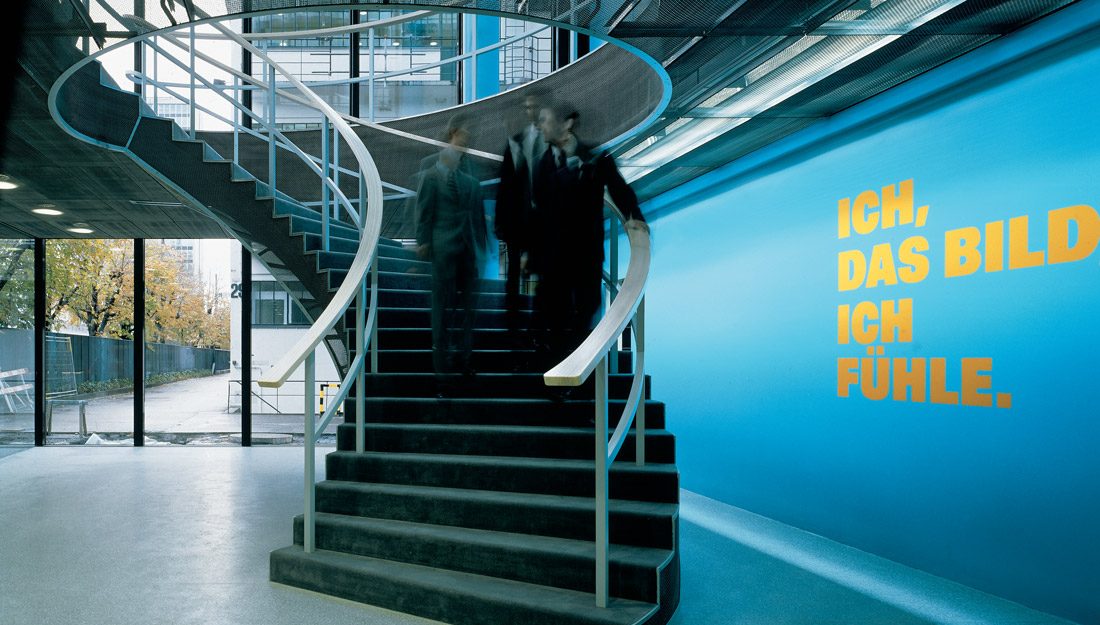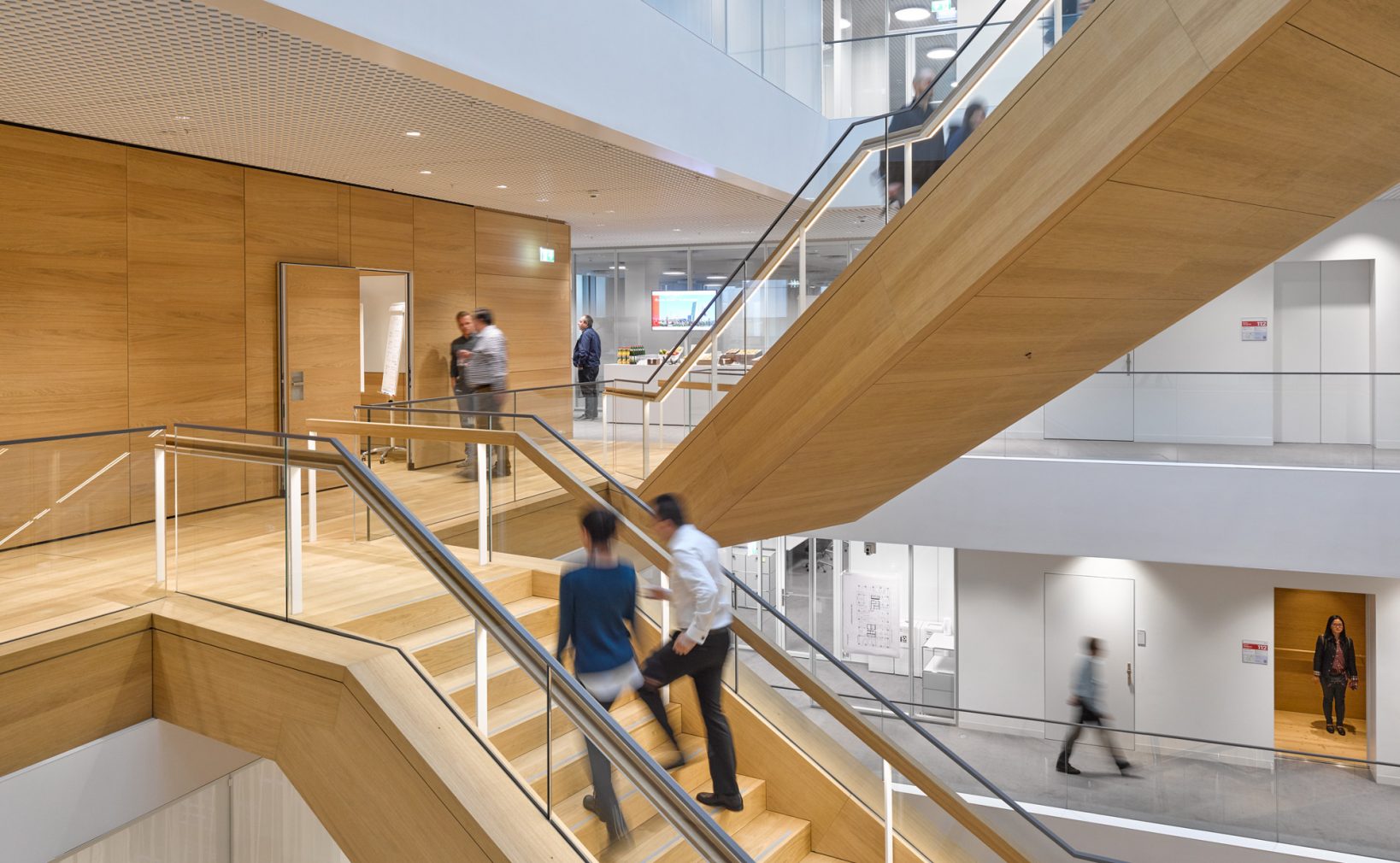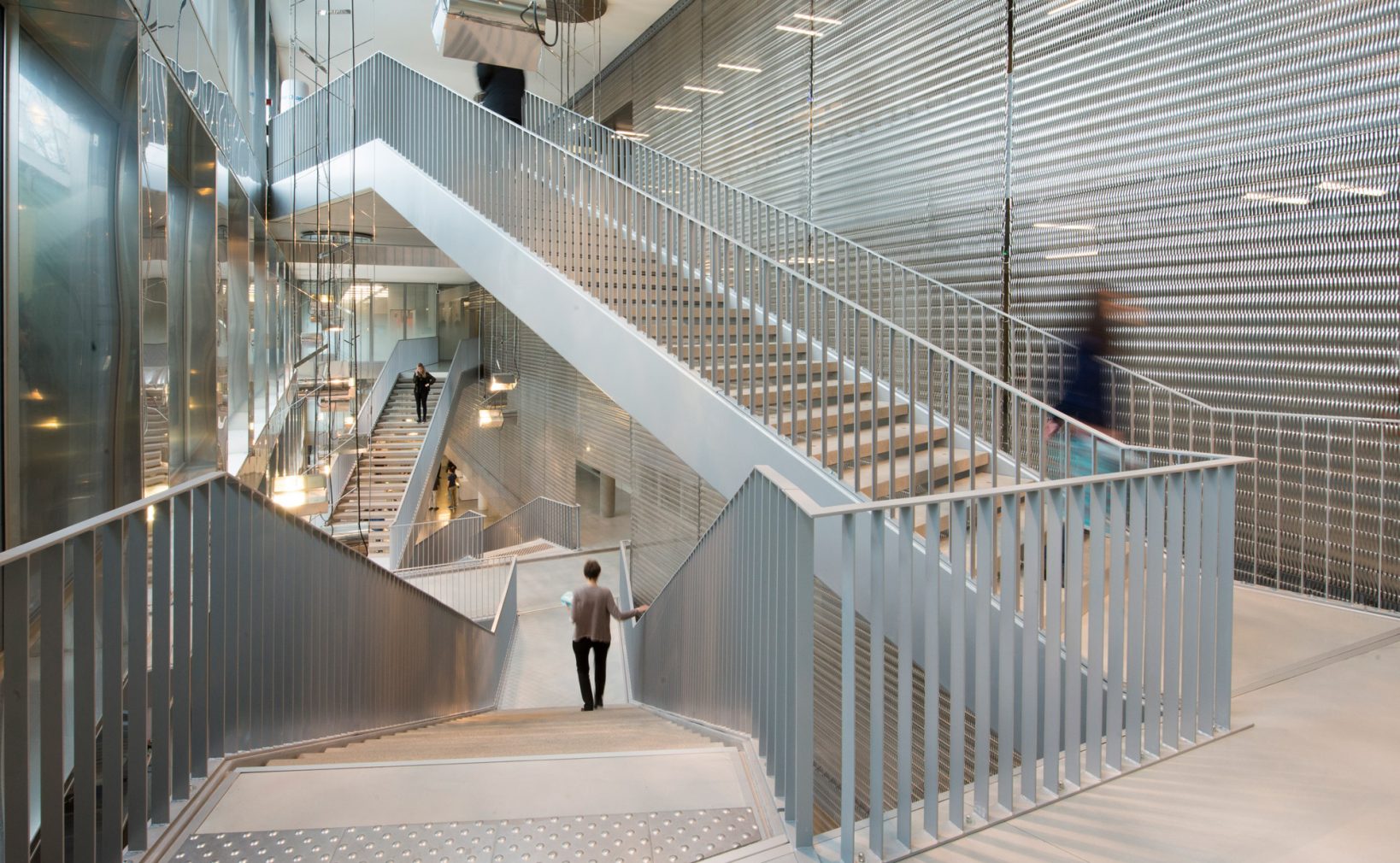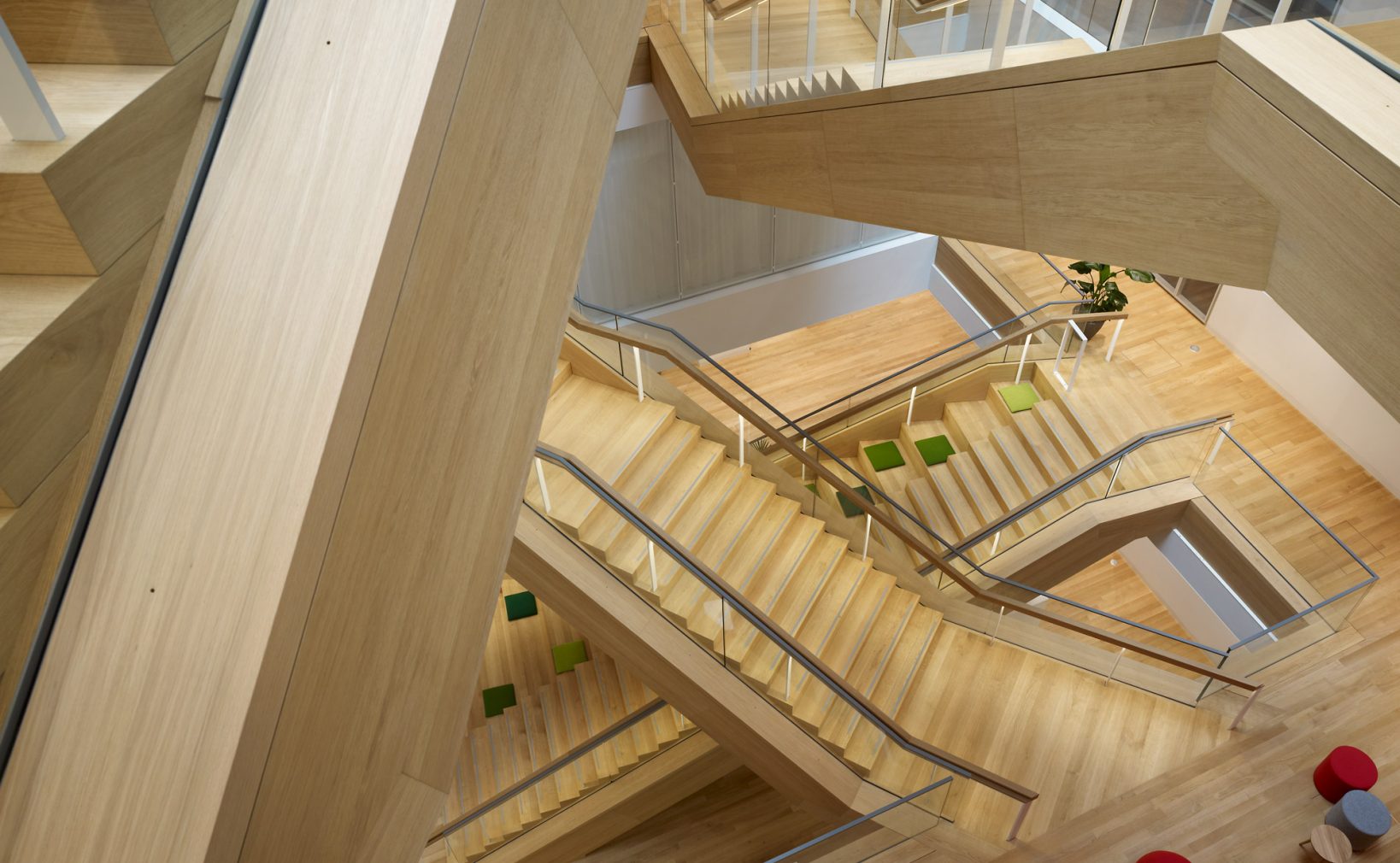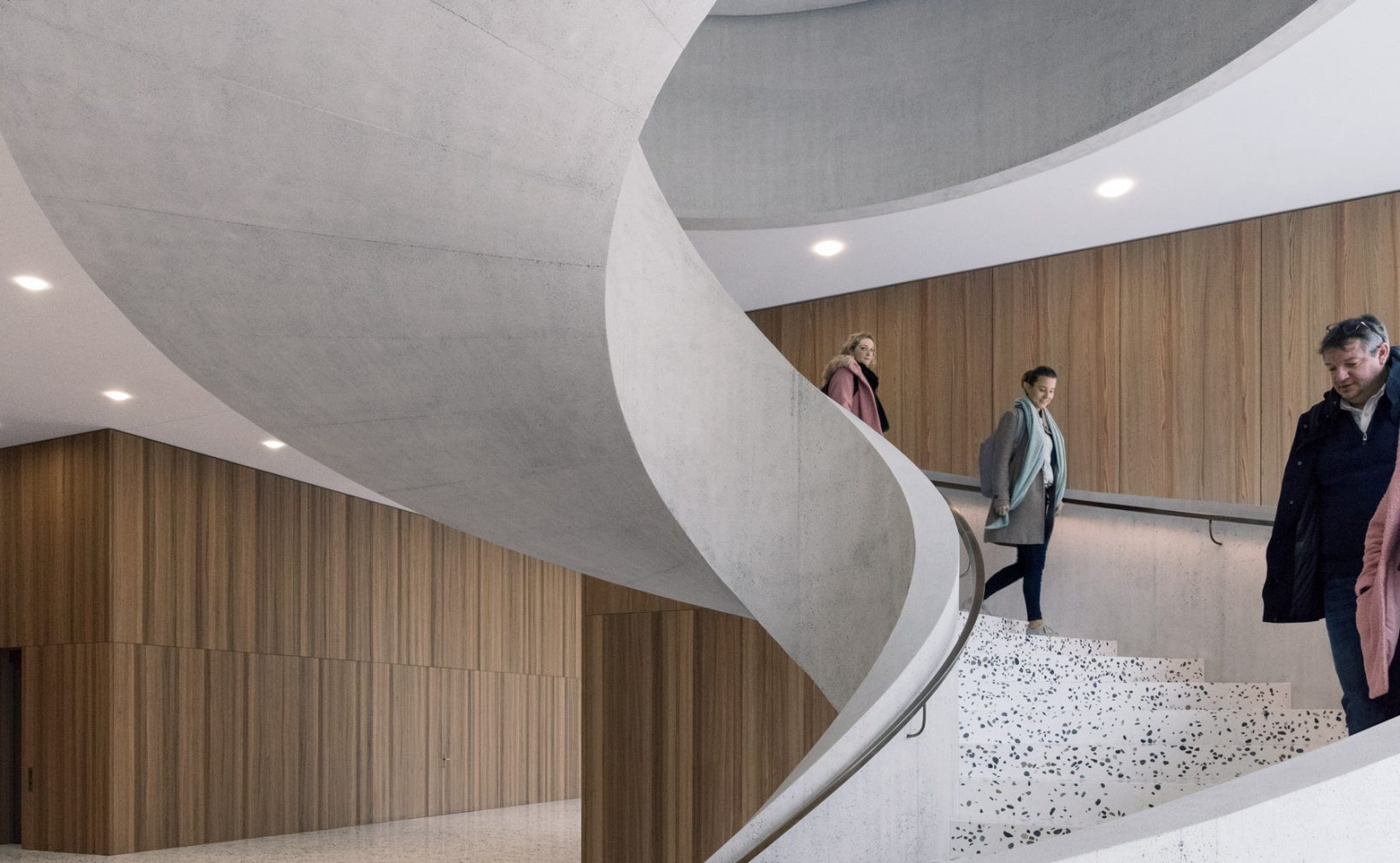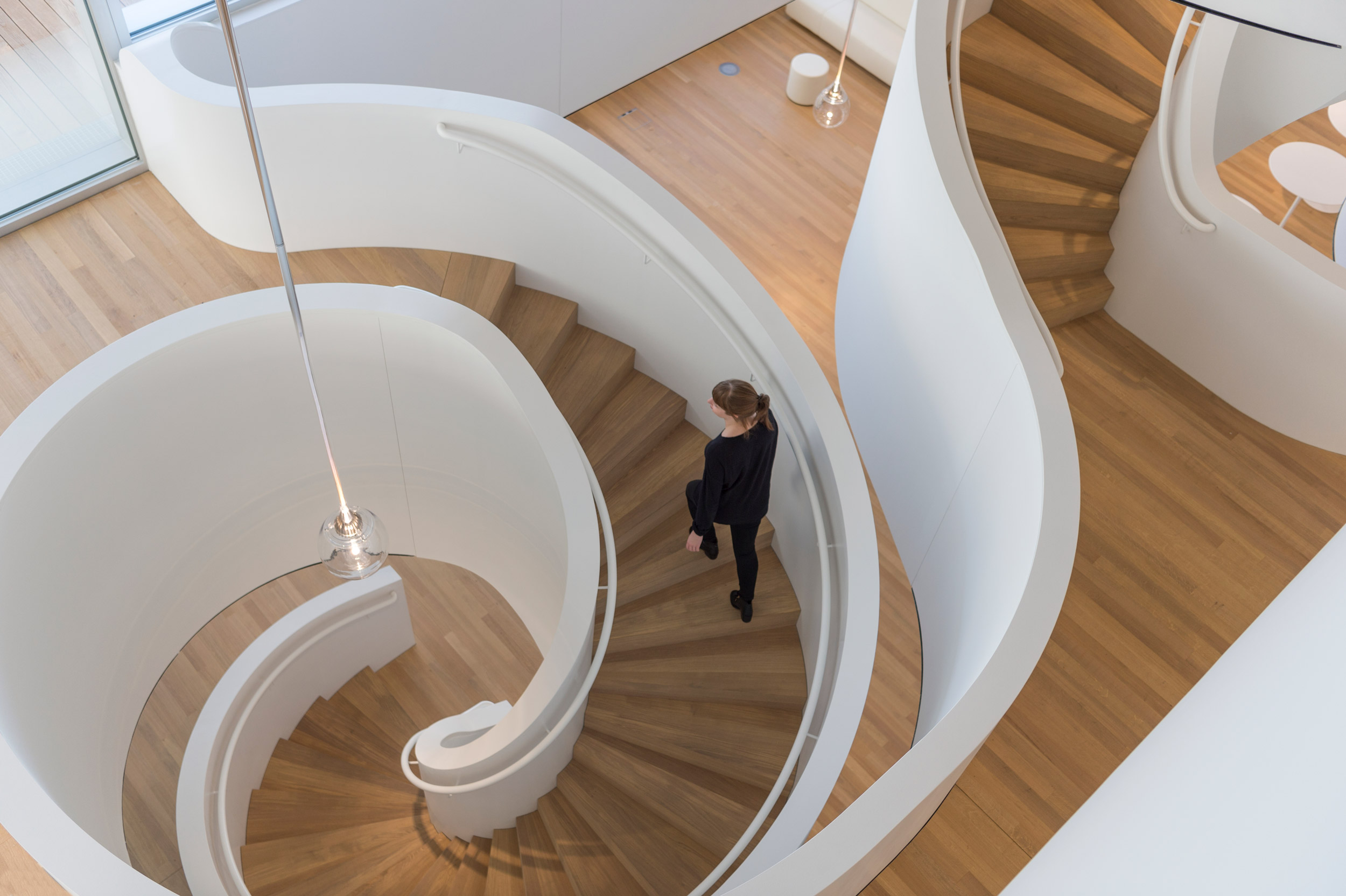
“Architecture is inhabited sculpture.”Constantin Brancusi - Sculptor
Experience movement
A staircase should be designed not merely thinking of its function of connecting floors, but as a experience of the third dimension for people: a highly functional element in the internal circulation of a building, laden with cultural and psychological symbolism. We want to encourage people’s movement. Stairs should be placed strategically and visible to invite people to walk, to promote social interaction and well-being.
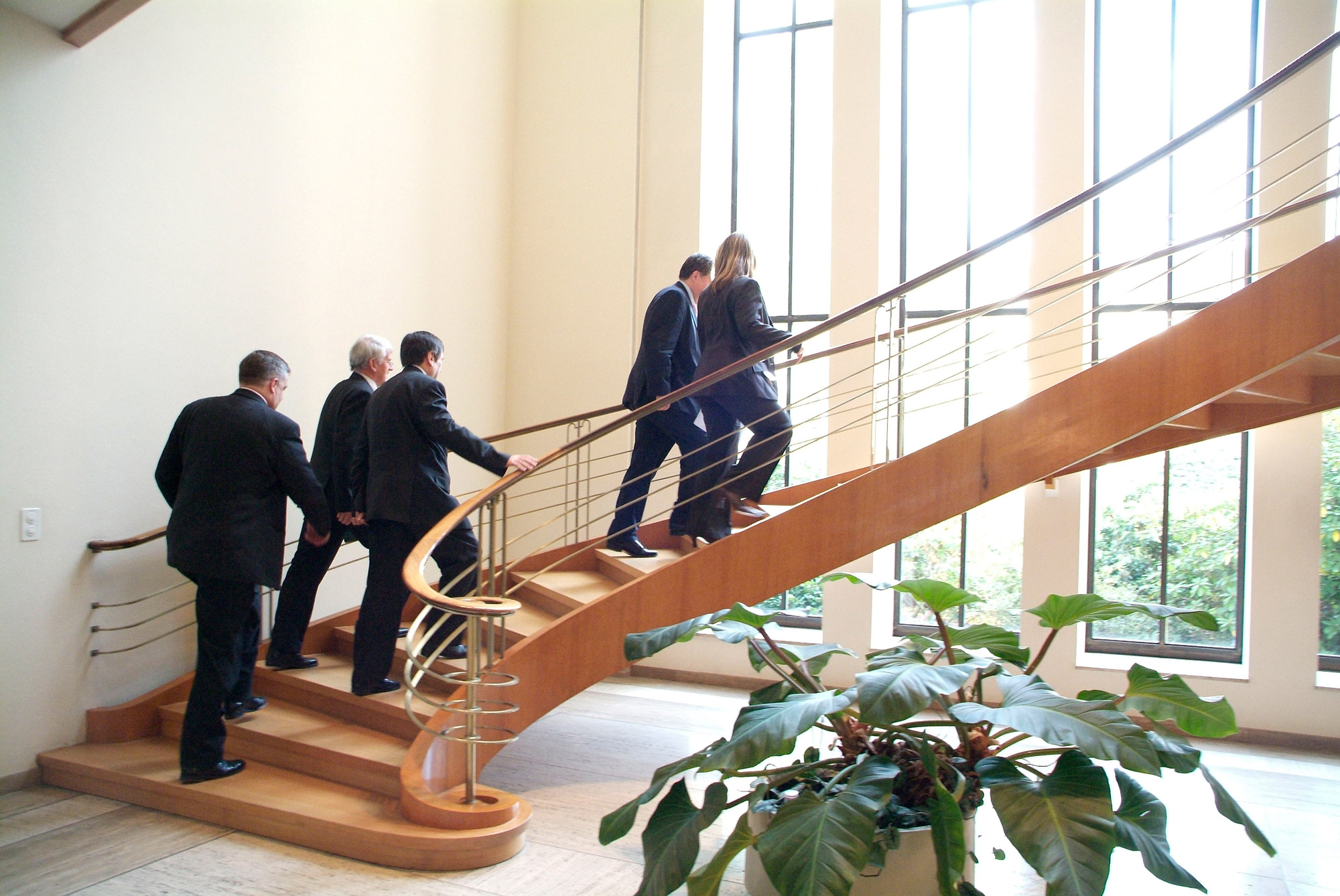
The oak stair from Roche house architect Salvisberg, a masterpiece developed in 1936 for the administration building 21 in Basel.
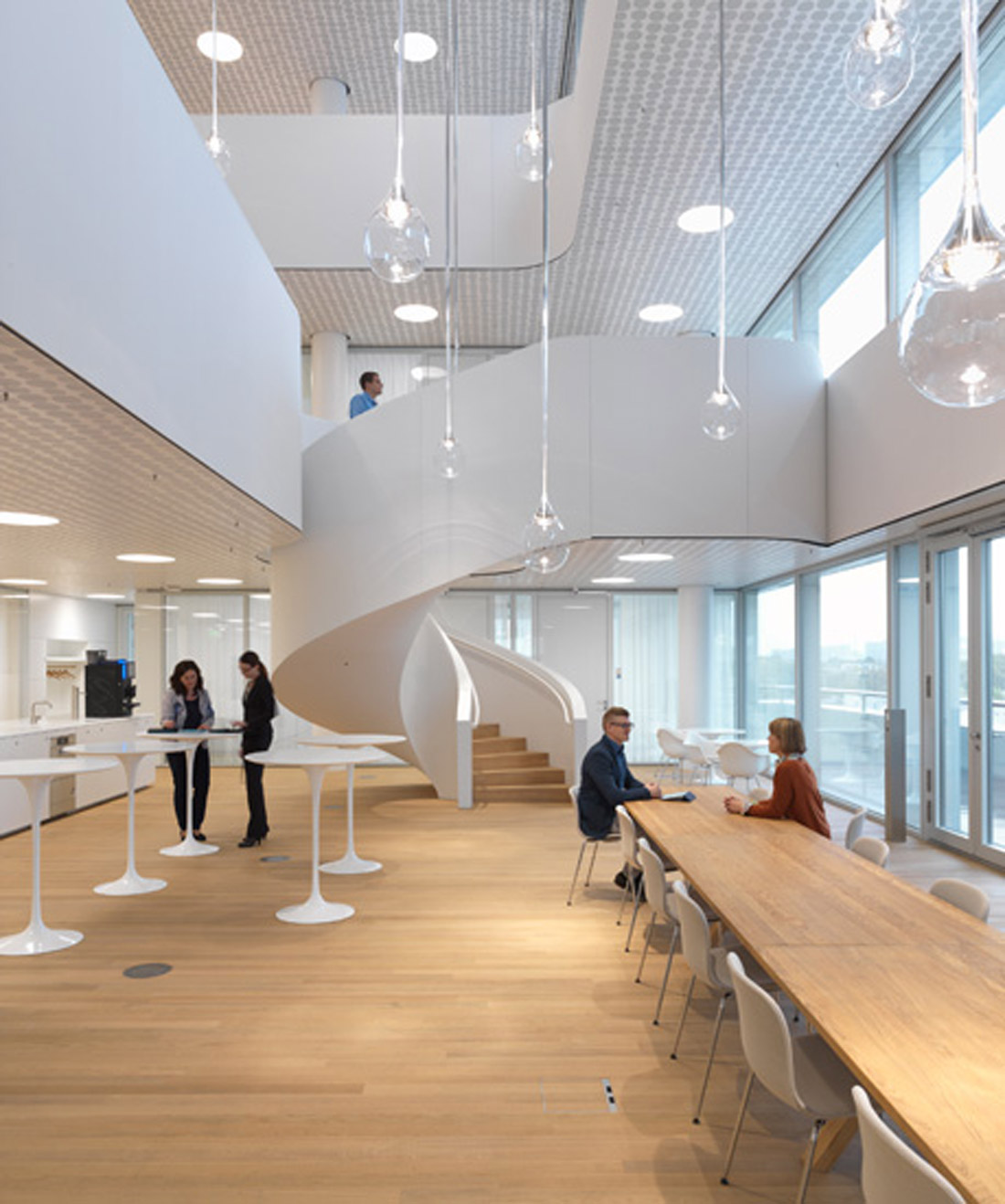
Improve the users’ spatial experience by designing shapes that reflect body movement.
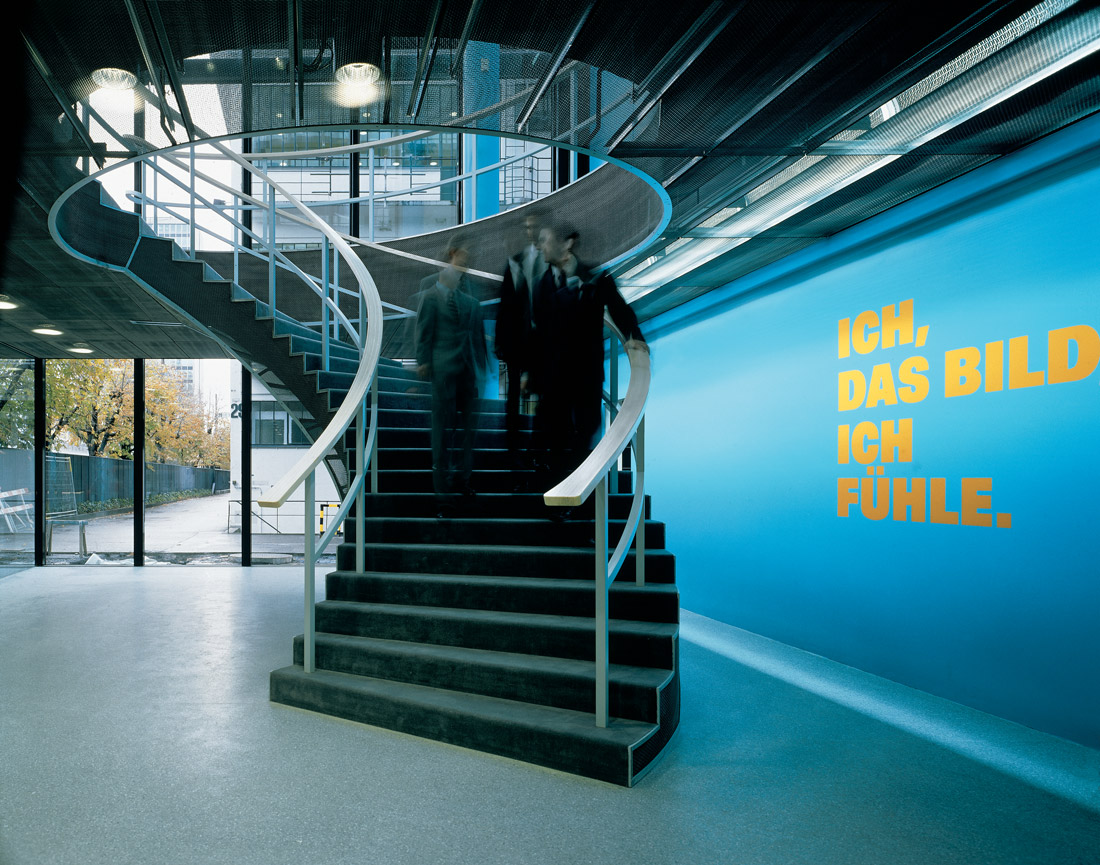
Dimensions, scale and proportions of the stairs should be related to the building spaces where they are placed.
The staircase is a strategic element that enables an unobstructed and flexible open plan.
Key to Emblematic stairs
- Encourage the use of stairs by placing them visibly in places of social interaction.
- Reflect on body movement to create a spatial experience through emblematic stairs.
